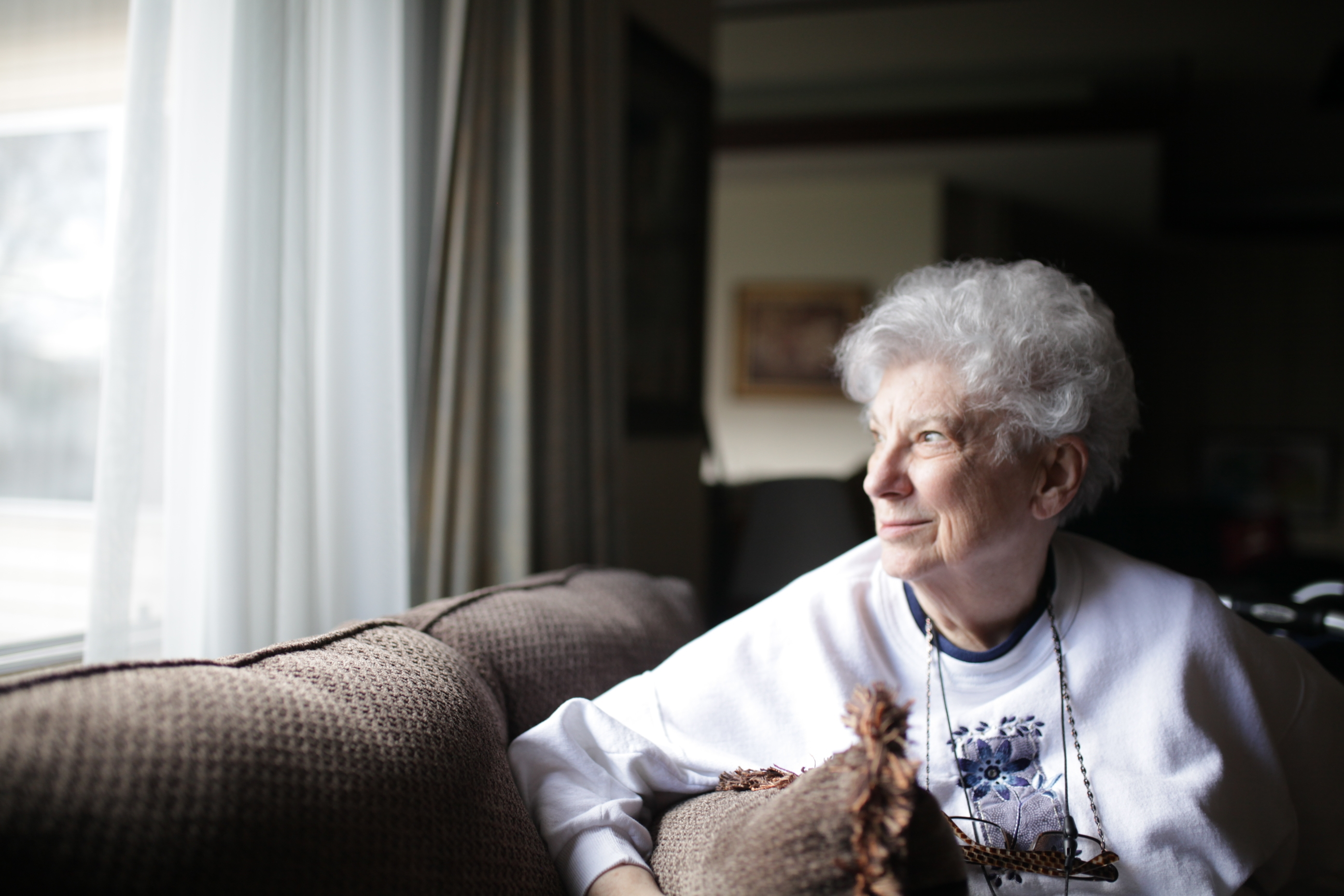
Brazilian pension for a foreign widow or widower
Spouses or foreign partners of Brazilians are also entitled to a death pension in Brazil, as long as they meet the requirements set out in social security legislation. Understand the main information about the Brazilian pension for a foreign below.
If you need legal assistance from our team, please message us on WhatsApp.
Can every foreigner receive a death pension left by a partner or spouse, insured by Brazilian social security?
Yes, as long as you can prove your status as a partner or spouse. This is because, in short, the dependents, spouses and/or partners of the INSS insured person who dies are entitled to the death pension. In other words, the Brazilian pension for a foreign may be possible.
In addition, there are priorities for receiving the pension, such as spouse/partner, children and similar persons up to 21 years of age or disabled or with mental or serious disabilities at any age. However, if there are no such dependents/relations, parents or siblings can also receive the benefit.
What requirements does the deceased need to have completed to be entitled to a death pension for foreign?
To be entitled to the death pension, the deceased insured person needed to be insured with the INSS. The dependent or spouse/partner needs to prove the condition of the relationship with the deceased and prove his death. In other words, the Brazilian pension for a foreign may be possible if you prove your relationship.
In other words, he must prove the stable union or marriage.
For how long will I receive the Brazilian pension for foreigners, being the spouse or partner of the Brazilian insured?
For partners of the deceased who contributed for less than 18 months or in cases where the union/marriage was less than 2 years before the death, the duration of the pension is only 4 months.
However, if the deceased paid INSS for more than 18 months and the relationship was longer than 2 years. The duration of the death benefit for the partner or spouse will depend on the age at the date of death of the insured person.
Understand the duration according to the survivor’s age in the table:
| RELATIONSHIP TO THE DECEASED AND AGE OF THE BENEFICIARY AT THE TIME OF DEATH | DURATION OF SURVIVOR’S PENSION PAYMENT |
| Former spouse or partner receiving alimony by court order | For the same period as alimony was determined |
| If the relationship was less than 2 years or the insured contributed only 18 months to the INSS | 4 months |
| Companion Under 22 years old | 3 (three) years |
| Companion Between 28 (twenty-eight) and 30 (thirty) years old | 6 (six) years |
| Companion Between 28 (twenty-eight) and 30 (thirty) years old | 10 (ten) years |
| Companion Between 31 (thirty-one) and 41 (forty-one) years old | 15 (fifteen) years |
| Companion Between 42 (forty-two) and 44 (forty-four) years old | 20 (twenty) years |
| Companion 45 years old or older | Lifetime |
Other durations:
- The insured must have contributed for 18 months or less or have entered into a marriage or stable union less than 2 years before death, for benefits to be granted within 4 months;
- If the person is invalid or has a disability, the termination of the disability or the removal of the disability will respect the rules in point 1;
- Alimony must be paid to the ex-spouse or ex-partner for the time that still remains to be paid.
Is there a minimum length of relationship to receive the death benefit in these cases?
Yes. According to Brazilian legislation, if the stable union lasted at least 2 years before the death of the insured person (if he contributed for more than 18 months), you can receive the pension for a longer period of time. This time varies according to the table shown in the item above.
However, if you have been in a stable relationship with the deceased for less than 2 years, you can receive the benefit for 4 months.
Therefore, this minimum length of relationship is required to avoid fraud and ensure that the death pension is only granted to those who actually maintained a relationship of affection and/or economic dependence with the deceased insured.
In fact, it is important to highlight that the death pension can only be granted to a spouse or partner. However, if there are more interested parties wishing to receive the pension, the person must prove the existence of the stable union and the right to the death pension.
If we were separated, but I received alimony, am I entitled to the death benefit?
Foremost, you may be entitled to the death pension as long as you meet all other requirements to be entitled to the benefit.
According to the law, for the right to a death pension to be recognized, you must prove economic dependence. Therefore, you, as a pension applicant, need to prove your dependence on the deceased insured. It can be a stable union or a valid marriage, as long as the existence of the relationship is proven by documents.
In the case of separation, alimony can be considered an economic dependence between the deceased insured and the person applicant for the death pension. But you must check whether the other requirements are met and whether there are documents proving the existence of the stable union or marriage.
Are same-sex couples entitled to a death pension left by a Brazilian insured person?
Yes, same-sex couples are entitled to a Brazilian pension for a foreign left by a Brazilian Social Security insured.
As of 2011, the STF, Federal Supreme Court, recognized stable unions between people of the same sex as equivalent to heterosexual stable unions. Since then, same-sex couples have been entitled to the same social security benefits, including the death pension.
In principle, to receive the death pension, you must prove the existence of a stable union between the deceased insured and the pension applicant. In this way, this can be done through documents that prove long-lasting coexistence, economic dependence and the relationship of affection between people.
Documents proving Stable Union/Marriage
- Proof of residence in both names (for example: water bill in the name of one and electricity bill in the name of the other, at the same address/date);
- Income Tax Declaration of the insured person, which lists the person concerned as their dependent;
- Testamentary provisions;
- Profiles on Social Networks;
- Photos at social events;
- Handwritten romantic letters;
- Constant entry in the Work Card;
- Special declaration made before a Notary;
- Constant annotation in the Employee Record Sheet or Book;
- Birth certificate of a child in common;
- Religious Marriage Certificate;
- Proof of evident domestic responsibilities and existence of partnership or communion in acts of civil life;
- Power of attorney or guarantee reciprocally granted;
- Joint bank account;
- Registration in an association of any nature where the interested party is listed as a dependent of the insured;
- Insurance policy in which the insured is listed as the initiator of the insurance and the person concerned as its beneficiary;
- Treatment record at a medical care institution for which the insured person is listed as responsible;
- Deed of purchase and sale of property by the insured in the name of the dependent and any other documents that may lead to the conviction of the fact to be proven.
If I receive a death benefit from an insured Brazilian, can I get married?
In principle, if you are receiving a death pension from an INSS insured, you can get married without affecting your right to the pension. However, if it is RPPS, you need to evaluate the specific regulations, because some do not allow marriage.
Furthermore, if there is any change in your personal situation, such as marriage, you must inform Social Security so that the continuity of your right to the death pension can be verified. This information must be provided even in the case of INSS.
If you have any doubts, consult with a lawyer specializing in social security law, what is best to do in your case. After all, if you do not notify correctly, it may later be considered fraud and a refund of amounts received improperly may be charged.
If I receive a death benefit from an insured Brazilian, can I work?
Yes, you can work while receiving the Brazilian pension for a foreign.
Therefore, unless the value of the salary removes the condition of economic dependence, work does not affect the right to the death pension, even if the applicant was a former partner at the time of death. However, if economic dependence is lost, the pension may be suspended or reduced, depending on the situation.
In other words, if you are a former spouse/partner, receive a death pension, started working and your work gave you sufficient means to support yourself, then your pension may be terminated.
If I receive a death benefit from an insured Brazilian, can I retire?
If you are receiving a death pension from a Brazilian Social Security insured, you can retire as long as you meet the requirements for retirement.
However, you will receive 100% of the higher benefit amount and only a portion of the lower benefit.
As a result, the percentage of the minor benefit will follow the table:
| Amount of the minor benefit | Percentage you will receive from the minor benefit |
| Up to 1 minimum wage | continues to receive 100% of the benefit, that is, without reduction; |
| More than 1 minimum wage up to 2 minimum wages | 60% of the benefit; |
| Above 2 minimum wages up to 3 minimum wages | 40% of the benefit; |
| More than 3 minimum wages up to 4 minimum wages | 20% of the benefit; |
| Above 4 minimum wages | 10% of the benefit. |
Does a foreigner need to be in Brazil to request a Brazilian pension for a foreign?
It’s not necessary for the foreigner to be physically present in Brazil to request the Brazilian pension for a foreign. After starting to receive the pension, you can carry out the process of transferring the benefit abroad remotely, as long as all necessary documents and proof of economic dependence on the deceased insured are presented.
However, you need to analyze whether your country imposes any impediments or restrictions on receiving amounts from Brazil.
Does a foreigner need to live in Brazil to receive or continue receiving death pension payments?
It’s not necessary for the foreigner to be living in Brazil to receive or continue receiving payment of the death pension.
In other words, foreigners can receive the benefit even if they are residing in another country.
How is the benefit amount transferred abroad if I move?
In short, the transfer of the benefit amount abroad can be carried out by bank transfer or by payment in foreign currency at a bank branch abroad.
To do this, the beneficiary must request the National Social Security Institute (INSS) to transfer the amounts to their account. However, this can only be done if the country where you want to send the money has an international pension agreement signed with Brazil.
If the country has an agreement, then you must inform the change of address abroad and provide the bank details of the country where you reside and the account in which you wish to receive payment.
Therefore, the process of transferring the benefit abroad may take some time and the INSS may request additional information, such as proof of change of residence.
In other cases, when there is no international pension agreement with Brazil, you need to send monthly remittances abroad, paying the appropriate fees and taxes. To do this, appoint an attorney in Brazil or look for a service specialized in remittances of this type.
What is the evidence to prove that the person who died was married or had a stable union with INSS insurance?
In summary, the evidence to prove that there was a stable union or marriage with an INSS insured person who died includes:
- Proof of residence in both names (for example: water bill in the name of one and electricity bill in the name of the other, at the same address/date);
- Income Tax Declaration of the insured person, which lists the person concerned as their dependent;
- Testamentary provisions;
- Profiles on Social Networks;
- Photos at social events;
- Handwritten romantic letters;
- Constant entry in the Work Card;
- Special declaration made before a Notary;
- Constant annotation in the Employee Record Sheet or Book;
- Birth certificate of a child in common;
- Religious Marriage Certificate;
- Proof of evident domestic responsibilities and existence of partnership or communion in acts of civil life;
- Power of attorney or guarantee reciprocally granted;
- Joint bank account;
- Registration in an association of any nature where the interested party is listed as a dependent of the insured;
- Insurance policy in which the insured is listed as the initiator of the insurance and the person concerned as its beneficiary;
- Treatment record at a medical care institution for which the insured person is listed as responsible;
- Deed of purchase and sale of property by the insured in the name of the dependent and any other documents that may lead to the conviction of the fact to be proven.
Do I need to translate tests that are from my country of origin? What are the rules for translation?
Yes, it’s necessary to translate evidence that is in another language into Portuguese, including documents coming from another country, if you need the Brazilian pension for a foreign. Therefore, the translation must be carried out by a public translator duly accredited by the Regional Council of Translators and Interpreters (CRTI) or by the Ministry of Justice.
Furthermore, the translation must include the identification of the public translator, his signature and the official seal. Furthermore, it is important that the translation is faithful to the original and proves the authenticity of the document.
For example, in some cases, the INSS may request the presentation of a certified copy of the original document, in addition to the translation. In this case, authentication must be carried out by a consulate or a notary’s office.
Therefore, it’s recommended to check the specific rules for translating documents in the country of origin and consult a Social Security professional.
What is the maximum period to request the benefit after the date of death?
There is no maximum application period, but there is a deadline to receive the benefit amount from the date of death.
In other words, there is a deadline for you to receive the arrears since the death. If you do not respect this deadline, you will only receive the pension after applying to the INSS.
Therefore, you have up to 90 days after death to request the INSS benefit and receive payment from the date of death.
However, the sooner the order is placed, the better. Requesting the death pension soon after the death of the insured reduces the risk of the request being rejected and makes it possible to receive retroactive amounts from the date of death.
What is the value of the Brazilian pension for a foreign?
The amount of the death benefit will be calculated based on the pension the deceased received or the permanent disability benefit to which he or she would have been entitled if he or she had survived.
In general, for deaths occurring after the pension reform, the value of the death pension is equivalent to 50% of the insured person’s benefit salary, plus 10% for each additional dependent, up to the limit of 100% of the benefit salary.
In other words, if 3 people are going to receive the benefit, say, a mother and two children, then the value will be 50% of the pension to which the deceased was entitled, plus 10% for each dependent. Thus, the total value of the pension will be 80% (50% + 30%).
How is the amount of the death pension for foreigners divided?
The rules for dividing the amount of the death pension applied to Brazilian spouses or partners also apply to the foreign applicant; In other words, an equal amount will be paid for each dependent who is entitled to the pension.
What do I do if my death benefit claim is denied/rejected?
If Social Security denies or rejects your Brazilian pension for a foreign request, it’s possible to file an administrative appeal against the decision or take legal action.
In fact, the appeal must be forwarded to the Social Security Appeals Board within 30 days from the date of notification of the decision.
Therefore, in the appeal, you must present all arguments and evidence that prove your right to the death pension, including documents that prove the family link with the deceased insured and your economic situation.
Furthermore, you can file a lawsuit without going through the administrative appeal. In Brazil, to file a claim in court, you must have a lawyer. Furthermore, in the case of a death benefit, the ideal lawyer is a Social Security lawyer.
If you need legal assistance from our team, please message us on WhatsApp.




